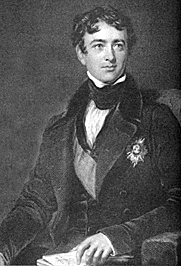

John George Lambton, Lord Durham, was born April 12, 1792, in London. In September 1813, he was elected to the House of Commons, like his father before him, as the member for Durham. He had already made a name for himself as a reformer and was deemed to be a moderate radical within the Whig party. The aristocratic Whigs found him worrisome, yet indispensable. When the Whigs came to power in 1830, he was appointed president of a committee mandated to draft a bill on parliamentary reform. In 1835, he was appointed ambassador to Russia. He returned to England two years later and was offered another mission abroad. This time it was Canada where, according to most observers, an insoluble crisis was festering. Durham declined the offer.
After the first rebellion, which arose in both Upper and Lower Canada, he was again approached and was promised almost dictatorial powers as Governor General and High Commissioner of British North America. His duties would include preparing a report on the situation. This time he accepted.
Durham landed at Quebec on May 27, 1838. From the outset he established a strategy for dealing with political prisoners from Lower Canada without worsening the situation. Instead of executing convicted prisoners, he had them sign a statement of guilt and deported them to Bermuda. He also prohibited 16 eminent members of the Patriot Party who had sought refuge in the United States, including Louis-Joseph Papineau--from returning to the country under penalty of death. The majority of others who were detained were set free.
Because of these measures, the Crown disowned Durham. Having been on the job for barely six months, he resigned and returned to England. He had, however, had the time to set up various commissions of inquiry and already had a clear idea of the content of his report, which he submitted in London on February 11, 1839. In it he explained that he expected to find a conflict between a government and a people, but instead found two nations at war within the same state. It was a war based on race, not on principles. In his opinion, Canada was a land of two hostile groups: the French and the English.